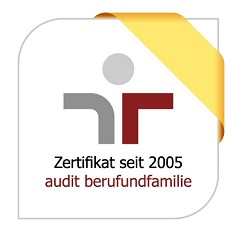Graduate Student in Proteomics and BMP Signal Transduction
Kennziffer: 2025-0213
- Heidelberg
- Full-time
- Systems Biology of Signal Transduction

„Forschen für ein Leben ohne Krebs“ – das ist unsere Aufgabe am Deutschen Krebsforschungszentrum. Wir erforschen, wie Krebs entsteht, erfassen Krebsrisikofaktoren und suchen nach neuen Strategien, die verhindern, dass Menschen an Krebs erkranken. Wir entwickeln neue Methoden, mit denen Tumore präziser diagnostiziert und Krebspatient:innen erfolgreicher behandelt werden können. Jeder Beitrag zählt – ob in der Forschung, in der Administration oder der Infrastruktur. Das macht unsere tägliche Arbeit so bedeutungsvoll und spannend.
Starting in October 2025, the Division "Systems Biology of Signal Transduction" is seeking a
The Division "Systems Biology of Signal Transduction" headed by Prof. Dr. Ursula Klingmüller integrates advanced experimental methods with mechanistic mathematical modeling to decipher how cells respond to signals in health and disease. Understanding the fine-tuned regulation of signaling pathways is essential to uncovering disease mechanisms and identifying novel therapeutic targets, particularly in cancer and chronic liver disease.
As part of the DFG-funded FerrOs consortium, we aim to unravel the complex, organism-wide regulation of systemic iron homeostasis and its effects on bone health, using a systems biology approach. In this interdisciplinary effort, we combine mass spectrometry-based proteomics with dynamic pathway modeling to define the role of BMP signaling and iron-regulatory mechanisms in both physiological and pathological contexts.
Ihre Aufgaben:
- Investigate BMP receptor complex composition and iron-induced signal transduction in hepatocytes and hepatocellular carcinoma cells
- Develop and apply quantitative mass spectrometry methods (global and targeted) for plasma, cell, and tissue samples to map iron-regulatory pathways
- Integrate proteomics datasets with mechanistic mathematical models to explore regulatory dynamics of hepcidin expression and systemic iron control
- Utilize phosphoproteomics workflows to uncover iron-dependent changes in signaling networks, with a focus on liver-bone communication
- Collaborate closely with computational biologists, modelers, and clinicians to advance integrative models and identify sex-specific disease mechanisms
- Contribute to publications and presentation of the results at scientific meetings
Ihr Profil:
- Master's degree in biochemistry, systems biology or a related life science discipline
- Expertise in cell biology, signal transduction and iron metabolism (knowledge in hepatology is of advantage)
- Expertise in mass spectrometry-based proteomics (including sample preparation, acquisition, and data interpretation)
- Experience in handling complex omics datasets, and in applying statistical and computational tools (R, Python) for data analysis are of advantage
- Familiarity with mathematical modeling in systems biology and pathway-level data integration is advantageous
- Excellent teamwork and communication skills with proficiency in English and motivation to work in a collaborative, interdisciplinary environment
- A strong scientific track record demonstrated by publications in peer-reviewed journals
Unser Angebot:
- Hervorragende Rahmenbedingungen: modernste state-of-the-art Infrastruktur und Möglichkeit zum internationalen Austausch auf Spitzenniveau
- Zugang zu internationalen Forschungs-Netzwerken
- Doktorandengehalt mit den üblichen Sozialleistungen
- 30 Tage Urlaub
- Flexible Arbeitszeiten
- Möglichkeit zur mobilen Arbeit und Teilzeitarbeit
- Familienfreundliches Arbeitsumfeld
- Nachhaltig zur Arbeit: Vergünstigtes Deutschland-Jobticket
- Entfalten Sie Ihr volles Potenzial: gezieltes Training und Mentoring durch das DKFZ International PhD Program und den DKFZ Career Service
- Unser betriebliches Gesundheitsmanagement bietet ein ganzheitliches Angebot für Ihr Wohlbefinden
Sie sind interessiert?
Prof. Dr. Ursula Klingmüller
Telefon: +49 (0)6221/42-4481
Bewerbungen per E-Mail können leider nicht angenommen werden.
Bitte beachten Sie auch, dass wir per Post eingereichte Bewerbungen nicht zurückschicken können.

